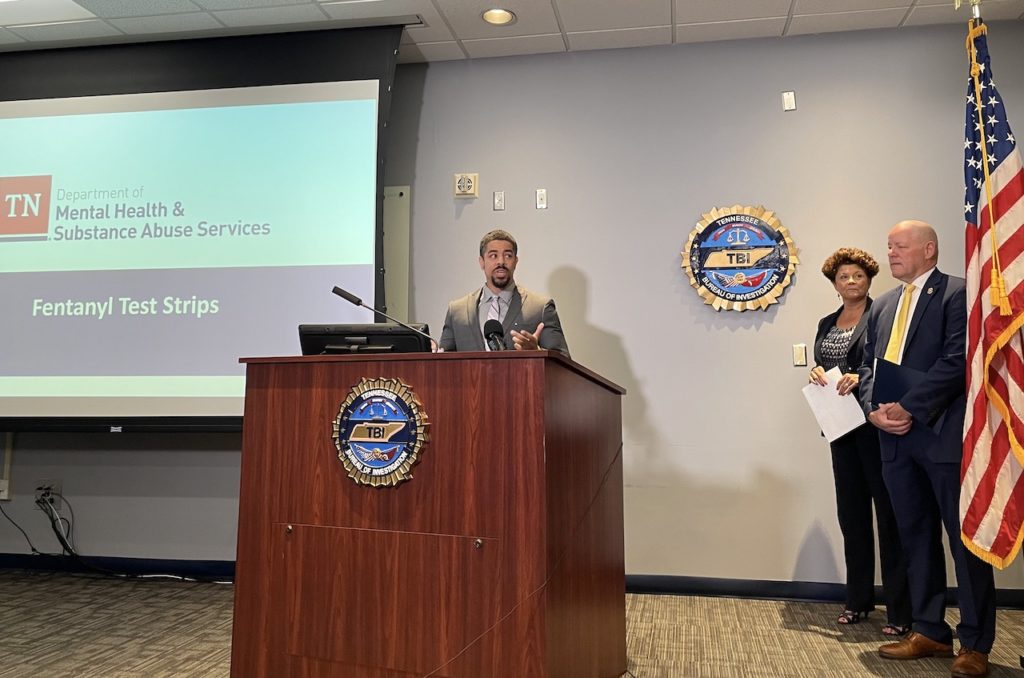
Fentanyl test strips have been legalized in Tennessee to help reduce the number of deadly overdoses. The state’s agency overseeing substance abuse has started handing them out and is finding the drug-checking kits are more effective than expected.
A 2018 survey of drug users by Johns Hopkins University found that 70% said if they knew their drugs contained fentanyl, they would change their behavior.
That’s roughly what state officials were hoping for when they started helping harm reduction nonprofits distribute test strips six weeks ago. But instead, it’s been more like 80% of recipients who have done something different after learning what’s in their drugs, says Anthony Jackson, prevention director in the Tennessee Department of Mental Health and Substance Abuse Services.
“It was interesting because it wasn’t just, ‘We use less.’ No, no, it was, ‘I decided not to use,'” he says.
As a pilot phase, the state’s needle exchange programs are the ones offering test strips to clients, though the state plans to open up broader access over time.
The early results of deterring use of fentanyl-laced drugs are a pleasant surprise to law enforcement officials who voiced concern during the law-making process that led to the decriminalization of test strips. Even as more states have passed laws to no longer treat test strips like drug paraphernalia, many in law enforcement have been skeptical since drug dealers also can make use of test strips, like proving the purity of their drugs.
But David Rausch, the director of the Tennessee Bureau of Investigation, says he’s impressed with the early results.
“That gives us even more confidence that it’s the right move,” he says.
Rausch says he’s motivated by data, and he’s finding that the test strips may go a long way toward saving more lives.
In the latest year data is available (2020), 3,034 Tennesseans died from overdoses. The unconfirmed numbers from 2021 suggest fatal overdoses continue to set new records, primarily with fentanyl to blame with the highly-potent opioid showing up in all kinds of counterfeit pills sold on the street.

